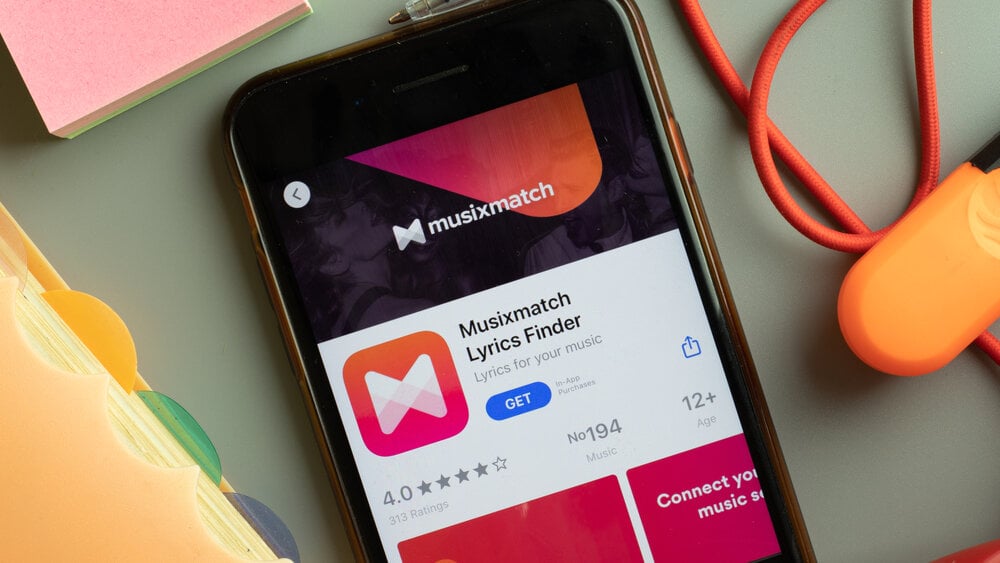Song lyrics company LyricFind alleges that a major investor in its primary rival, Musixmatch, attempted to “buy or bury” the company in order to stave off competition, in documents related to LyricFind’s antitrust lawsuit against Musixmatch.
The allegation was made in LyricFind’s legal complaint against Musixmatch filed in March of this year, but was redacted from publicly available versions of the document. LyricFind has now released the unredacted version.
Because of a “competitive threat” from LyricFind, Musixmatch and its investor TPG “embarked on a multi-faceted ‘buy or bury’ scheme to exclude LyricFind and other providers from the market so it could continue charging unlawfully inflated prices without the risk of losing business.” LyricFind said in the complaint.
The complaint alleges that, in 2023, TPG attempted to acquire LyricFind “so that Musixmatch would no longer have to compete with it.” During that process, TPG and Musixmatch gained access to confidential LyricFind information, which was covered by a non-disclosure agreement. LyricFind alleges that TPG and Musixmatch violated that NDA by leaking information to Spotify “in the hopes that doing so would help them avoid competing on price or quality.”
When discussions between LyricFind and Spotify continued despite the leak, LyricFind alleges, Musixmatch switched tactics and signed an agreement with publisher Warner Chappell Music (WCM) that made Musixmatch the exclusive provider of lyrics rights licensing and lyric data services for songs published by WCM.
That agreement is at the core of the antitrust lawsuit that LyricFind filed against Musixmatch and TPG in a US District Court in San Francisco in March.
LyricFind argued that the agreement was meant to push it out of the lyrics marketplace by removing its ability to provide a comprehensive catalog of lyrics, and that it also ties the hands of music streaming services like Spotify, as they now have to license WCM lyrics through Musixmatch “at monopolistic prices.”
Notably, LyricFind has cut at least one exclusive licensing deal of its own, with Universal Music Publishing Group in 2014, which gave LyricFind exclusive rights to sublicense UMPG lyrics, though UMPG retains the right to license its lyrics directly.
“LyricFind filed a nuisance lawsuit against Musixmatch, complaining about the same type of licensing practices that it has used in the recent past,” a Musixmatch spokesperson told MBW.
“LyricFind is now accusing Musixmatch of foul play and hiding behind the copyright laws, when in reality it is precisely those laws that ensure rights owners have a choice about who they do business with and that songwriters are compensated for their creative works. LyricFind’s misguided attempt to recover in court what it couldn’t win in the market place would infringe upon and limit the choices that music rights holders make.”
LyricFind has argued it’s fighting on behalf music streaming platforms. In an open letter earlier this year, Founder and CEO Darryl Ballantyne said Spotify had “completed onboarding with LyricFind but were robbed [of[ the opportunity to select the lyric provider of its choice” as a result of the Musixmatch-WCM deal.
Musixmatch has called the lawsuit “meritless,” and both it and TPG filed motions to dismiss the case. In its motion, filed in June, Musixmatch said Warner Chappell, as the owner of publishing copyrights, has the right to sign exclusivity agreements.
“LyricFind has not sued WCM or challenged the lawfulness of WCM’s decision to end their relationship, and for good reason: under the U.S. Copyright Act, WCM indisputably has the right to exclusively license and distribute its intellectual property as it sees fit, and has exercised that right by contracting with Musixmatch,” stated the motion, which can be read in full here.
“LyricFind’s misguided attempt to recover in court what it couldn’t win in the market place would infringe upon and limit the choices that music rights holders make.”
Musixmatch
Musixmatch also argued that the California court doesn’t have jurisdiction in the matter, as LyricFind is a Canadian company, Musixmatch is Italian, and the agreement between WCM and Musixmatch is governed by the laws of the United Kingdom.
“LyricFind’s claims are a textbook example of a disappointed competitor seeking to use the courts to achieve what it could not in the marketplace. But LyricFind, a foreign plaintiff, has neither the right to hale Musixmatch, a foreign defendant, before California courts, nor has it pled any plausible claims that would entitle it to any relief,” Musixmatch stated in its motion to dismiss.
In a response to that motion, filed with the court on Thursday (July 10), LyricFind argued that the federal court in California has jurisdiction because Musixmatch “purposefully directed its anti-competitive conduct at the United States and California. The United States is the epicenter of the lyric-services industry, home to WCM’s licensing business, much of Musixmatch’s leadership, and nearly all major DSPs impacted” by the Musixmatch-WCM agreement.
“[Musixmatch] are grasping at straws to keep this case from going to trial.”
Darryl Ballantyne, LyricFind
It also rejected Musixmatch’s argument that WCM had a right to enter into the contract.
“Courts have long condemned exclusivity schemes like the [Musixmatch-WCM deal], where a seller or distributor forecloses its rivals’ access to key inputs, thereby driving them from the market, so it can raise prices….
“Copyright law does not shield Musixmatch from antitrust liability. Courts have consistently rejected the notion that exclusivity arrangements involving intellectual property are beyond the reach of the Sherman Act,” LyricFind added, referring to the US’s principal antitrust law.
In a statement to media, LyricFind’s Ballantyne said the Musixmatch and TPG dismissal motions “misrepresent the reality of lyric licensing, and those in the music industry will see through their arguments. They are grasping at straws to keep this case from going to trial, and we look forward to starting discovery to see the full depth of their alleged anticompetitive scheme.”Music Business Worldwide







